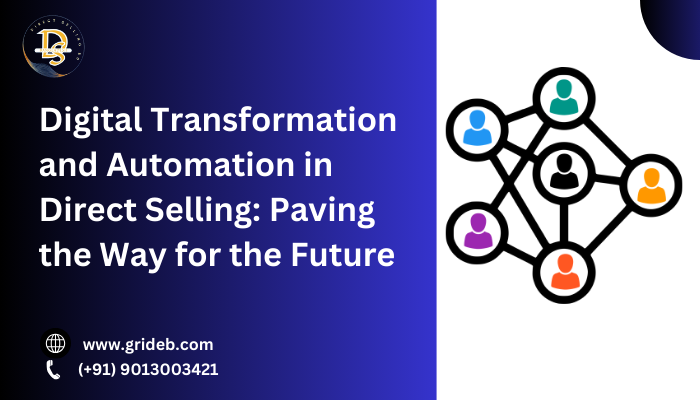Technological Integration in MLM: A New Era of Innovation
.png)
Artificial Intelligence (AI)
AI is playing a pivotal role in modernizing MLM operations. By analyzing vast amounts of data, AI can provide valuable insights into customer behavior, helping companies tailor their marketing strategies more effectively. Here are some key applications of AI in MLM:
Personalized Marketing:AI algorithms analyze customer preferences and purchasing patterns to deliver personalized marketing messages. This increases the likelihood of conversions and improves customer satisfaction (https://mlmtrend.org) (The Direct).
Predictive Analytics:AI-powered predictive analytics help MLM companies forecast sales trends and identify potential high-performing distributors. This enables better resource allocation and strategic planning.
Automated Customer Service:Chatbots and virtual assistants powered by AI provide instant customer support, addressing common queries and issues. This improves response times and frees up human resources for more complex tasks.
Blockchain Technology
Blockchain technology is being adopted by MLM companies to enhance transparency and security. The decentralized nature of blockchain ensures that all transactions are immutable and easily verifiable, reducing the risk of fraud and improving trust among distributors and customers.
Transparent Transactions:Blockchain records every transaction in a secure and transparent manner, making it easier to track sales and commissions. This eliminates disputes over compensation and ensures fair distribution of earnings.
Smart Contracts:Smart contracts automate the execution of agreements based on predefined conditions. In MLM, this can streamline the commission payment process, ensuring that distributors receive their earnings promptly and accurately (https://mlmtrend.org).
Mobile and Digital Tools
Mobile applications and digital tools are becoming indispensable in the MLM industry. They provide distributors with the flexibility to manage their business on the go, enhancing productivity and engagement.
Distributor Management Apps:These apps allow distributors to track their sales, monitor team performance, and manage customer relationships from their smartphones. They offer real-time updates and analytics, helping distributors make informed decisions.
Digital Marketing Tools:Social media marketing and digital advertising are crucial for MLM companies. Tools that automate social media posts, track engagement metrics, and generate leads are invaluable for expanding the reach and impact of marketing campaigns (The Direct).
Enhanced User Experience
Technological integration significantly enhances the user experience for both distributors and customers. Improved communication tools, user-friendly interfaces, and seamless transaction processes contribute to a more satisfying and efficient MLM experience.
Virtual Training and Support:Online training modules and virtual support systems equip distributors with the knowledge and skills they need to succeed. This reduces the learning curve and empowers distributors to achieve their goals.
E-commerce Platforms:Robust e-commerce platforms with intuitive navigation and secure payment gateways make it easy for customers to browse products and make purchases. This drives sales and improves customer loyalty (https://mlmtrend.org) (The Direct).
Conclusion
The integration of advanced technologies is ushering in a new era of innovation in the MLM industry. AI, blockchain, and mobile tools are not only streamlining operations but also enhancing transparency, security, and user experience. As MLM companies continue to embrace these technological advancements, they are better positioned to meet the evolving needs of distributors and customers, ensuring sustained growth and success in a competitive market.
By staying at the forefront of technological integration, MLM companies can foster a more efficient, transparent, and engaging environment for all stakeholders, paving the way for a brighter future in the industry.
.png)
.png)
.png)
.png)
.png)
